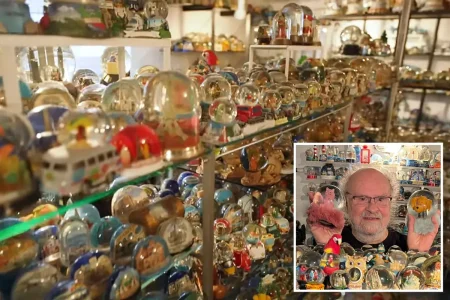Brewing The Future: The Evolution Of Coffee Shops And What’s Ahead
The aroma of freshly brewed coffee has permeated societies for centuries, evolving from a simple beverage to a cultural phenomenon deeply intertwined with social interaction, intellectual discourse, and artistic inspiration. From the bustling coffee houses of 17th-century London, where political debates and philosophical arguments filled the air, to the trendy, tech-infused cafes of today, the coffee shop has continuously adapted, reflecting the changing needs and desires of the communities it serves. This evolution is a testament to the enduring appeal of coffee, and its ability to create a space for connection, creativity, and comfort in an ever-changing world.
The earliest iterations of coffee houses served as hubs for news dissemination and intellectual exchange. These establishments, often referred to as "penny universities," provided a platform for individuals from all walks of life to engage in stimulating conversations about politics, literature, and current events. The affordability of coffee made these spaces accessible to a wider audience, fostering a sense of community and shared experience. This democratizing effect threatened established power structures, leading to periods of suppression and regulation. Yet, the coffee house persevered, becoming an integral part of the social fabric, laying the groundwork for the modern cafe culture we experience today.
The 20th century witnessed the rise of iconic coffee brands like Starbucks, which transformed the coffee experience into a global phenomenon. Standardization, branding, and the introduction of espresso-based beverages like lattes and cappuccinos revolutionized the industry, creating a recognizable and accessible coffee experience for the masses. This period also saw the emergence of the coffee shop as a "third place"—a space between home and work where individuals could relax, socialize, and connect with their community. The cozy atmosphere, the comforting aroma of coffee, and the availability of comfortable seating fostered a sense of belonging and provided a reprieve from the pressures of daily life.
However, the rise of large coffee chains sparked a counter-movement, a resurgence of independent coffee shops focused on quality, sustainability, and community engagement. These "specialty coffee" establishments prioritize sourcing ethically produced beans, meticulously roasting them in-house, and employing skilled baristas who understand the nuances of coffee preparation. This emphasis on craftsmanship and quality has resonated with consumers seeking a more authentic and personalized coffee experience. The independent coffee shop became a haven for coffee aficionados, a place to discover unique flavor profiles and engage in meaningful conversations with knowledgeable baristas.
The digital age has brought about significant changes to the coffee shop landscape, impacting both large chains and independent cafes. The proliferation of Wi-Fi and the rise of remote work have transformed coffee shops into makeshift offices, providing a productive environment for freelancers, entrepreneurs, and remote workers. This shift has led to adjustments in cafe design, with an increasing emphasis on comfortable seating, ample power outlets, and quiet spaces for focused work. The integration of technology, such as mobile ordering and loyalty programs, has further enhanced the customer experience, streamlining the ordering process and offering personalized rewards.
Looking ahead, the future of the coffee shop promises continued innovation and adaptation. Sustainability will play an increasingly crucial role, with cafes implementing eco-friendly practices, reducing waste, and sourcing beans from environmentally conscious farms. The focus on quality and craftsmanship will remain paramount, with a growing emphasis on single-origin coffees, alternative brewing methods, and personalized coffee experiences. Technology will continue to shape the customer experience, offering seamless integration with mobile devices, personalized recommendations, and innovative ways to connect with the coffee community. The coffee shop will continue to evolve, remaining a vital social hub, a source of inspiration, and a comforting constant in a rapidly changing world. This evolution will be driven by the enduring appeal of coffee, the desire for connection and community, and the ongoing pursuit of the perfect cup.
Furthermore, the emphasis on creating a unique and immersive experience will intensify. Coffee shops will increasingly incorporate elements of art, music, and culture to enhance the overall atmosphere and create a distinct identity. This could manifest in curated art displays, live music performances, book clubs, or workshops related to coffee brewing and appreciation. The coffee shop will become a multi-faceted destination, offering a richer and more engaging experience beyond just a caffeine fix.
The growing interest in health and wellness will also influence the evolution of the coffee shop. Cafes will expand their menus to include healthier food options, catering to dietary restrictions and preferences. The incorporation of functional beverages, such as adaptogen-infused coffees and wellness lattes, will cater to the growing demand for health-conscious choices. This trend towards health and wellness reflects a broader societal shift towards mindful consumption and a focus on overall well-being.
The role of the barista will continue to evolve, transitioning from simply a coffee maker to a knowledgeable expert and brand ambassador. Baristas will possess a deep understanding of coffee origins, roasting techniques, and brewing methods, allowing them to guide customers through the nuances of different coffee varieties. They will be able to offer personalized recommendations based on individual preferences, creating a more curated and bespoke coffee experience.
Finally, the coffee shop will increasingly leverage technology to enhance customer engagement and build stronger communities. Interactive digital displays, augmented reality experiences, and personalized mobile applications will create new ways for customers to connect with the cafe and fellow coffee lovers. These technological advancements will foster a sense of belonging and strengthen the social fabric of the coffee shop community.
In conclusion, the coffee shop has come a long way from its humble beginnings. It has transformed from a simple purveyor of coffee to a dynamic and multifaceted space that caters to a wide range of needs and desires. The future of the coffee shop promises continued innovation, driven by a confluence of factors, including sustainability, technology, health and wellness, and the ever-evolving demands of the consumer. One thing remains certain: the coffee shop will continue to play a vital role in our lives, providing a space for connection, creativity, and the simple pleasure of enjoying a perfectly brewed cup of coffee.













